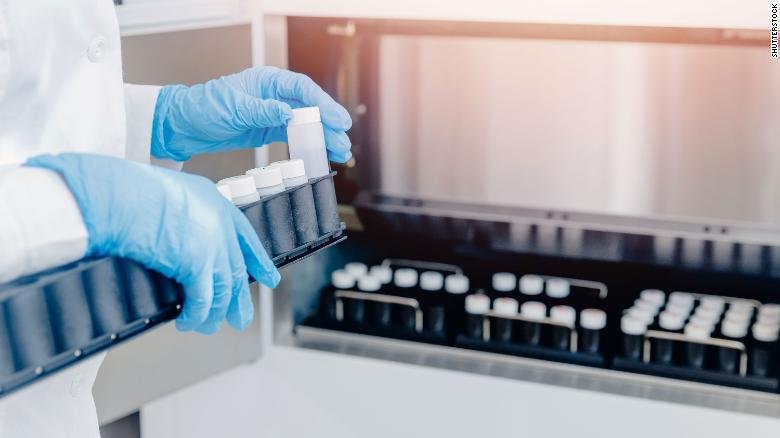Men should be allowed to donate sperm after death, study says

Sperm donations from dead men is “ethically permissible,” say doctors seeking to tackle the shortage of living donors in the UK.
A study published in the Journal of Medical Ethics Monday proposed that men should be able to “register their desire to donate their sperm after death for use by strangers.”
Such a procedure would be similar to organ donation, authors Dr. Nathan Hodson of the University of Leicester and Dr. Joshua Parker of Manchester’s Wythenshawe Hospital wrote in the study.
“If it is morally acceptable that individuals can donate their tissues to relieve the suffering of others in ‘life-enhancing transplants’ for diseases, we see no reason this cannot be extended to other forms of suffering like infertility, which may or may not also be considered a disease,” the study says.
The mechanics of donating, they say, are entirely feasible through either electroejaculation or surgical methods.
Sperm would be cryopreserved following collection and thawed when chosen for reproduction, the authors said.
Scientists said that harvesting sperm after death has been possible for many years and there is evidence that it can be used in reproduction. Sperm retrieved even up to 48 hours after death can result in viable pregnancies and healthy children, they said.
Ongoing shortage of sperm donors in UK
The process would address the ongoing shortage of donor sperm in the UK, argue the authors, which has led to Britain importing commercially donated sperm to cope with demand from couples struggling to conceive.
In 2017, an estimated 4,000 samples were imported from the US and another 3,000 from Denmark, according to the UK’s Department of Health and Social Care.
Researchers argued that sperm donated in this way could offer solace to the donor’s bereaved family.
“Grieving families commonly take solace in the knowledge that their loved one’s organs have been used to improve the lives of others,” the paper states.
“Given the value that society places on parenthood and child-rearing, there is reason to believe that families of donors would react in a similar way regarding the donation of gametes.”
But, according to the Human Fertilisation and Embryology Authority (HFEA), donors must be screened in line with legal requirements and guidance. HFEA is the UK agency that regulates fertility clinics.
This includes medical screenings which can only be carried out while the donor is alive. At present, HFEA says, donors must be fully informed about the process and its implications, offered counseling and consent to the procedure.
“None of these requirements could be satisfied if donation was only undertaken after death. Essentially, this means that harvesting sperm from a donor after death is currently illegal,” a spokeswoman for HFEA said in a statement to CNN.
Other experts questioned the impact using a deceased sperm donor would have on future offspring.
Sarah Norcross, director of fertility charity Progress Educational Trust, told CNN that in the UK, offspring can find out the identity of their donor at the age of 18.
“If we allow sperm donation after death, that opportunity would be closed to donor-conceived people. What do donor-conceived individuals think the impact would be of never being able to meet their donor?” Norcross said.
Dr. Allan Pacey, professor of andrology at the University of Sheffield, told CNN that he disagreed with the study’s recommendation.
“Given the distance we have traveled in terms of recruiting donors who are willing to be identified to donor-conceived people, it feels like a backward step to then recruit donors who are dead and therefore they will never have the opportunity to meet,” he said.
Pacey said that the he felt “very uncomfortable with the idea,” and advocated using more resources to recruit younger, healthy, willing donors “who stand a good chance of being alive when the donor-conceived person starts to become curious about them.”
